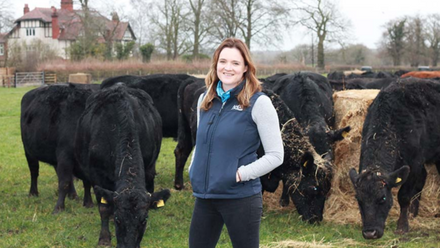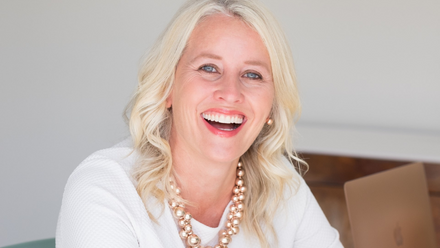Menopause in the workplace
With around 3.5 million women aged between 15 and 65 years currently in employment in the UK, women now represent nearly a half of the UK labour force. That surely makes menopause mainstream and as important as any other occupational health issue.
And with more people staying in employment and the workplace whilst they go through the menopause, it’s crucial that organisations have support in place for their employees.
Some workplaces are beginning to examine what support can be given to employees experiencing the symptoms of menopause, there is still progress to be made. Coping with menopausal symptoms at work can be tough and some women are, understandably, reluctant to talk to their employer about it.
To help tackle these issues and to arm you with accurate information, resources and reassurance around the topic, we recently welcomed Gynaecologist, Founder and Managing Director of Menopause Matters Ltd and author Dr Heather Currie MBE to help us have an open, honest conversation about menopause
Menopause champions
“A great thing to do” says Heather “Is having someone who is often termed as a menopause champion. Often what I hear from women is that they find it difficult to go to their line manager as they don’t want that person to think they can’t do their job. If you’re having difficulty concentrating, forgetting things, finding it stressful to do things you’ve done easily previously like presenting for example, that can be what it feels like. So in some workplaces, it can be useful to have someone to talk through what you’re going through.
That doesn’t have to be a medically qualified person, it can be someone who signposts and has a basic understanding and can support. Some women want to share their experiences and that can be really therapeutic for them.”
Online sessions
“Workplaces can also do more sessions like this masterclass to raise awareness and also put on specific sessions for management including male colleagues so they know how to support. I’ve found that attitudes are changing and that generally men are really keen to support.”
Be open and honest
Empowering and encouraging women to speak up in the workplace is also crucial but it can be difficult.
“It’s about asking for understanding whilst we get sorted. When we start having our symptoms we aren’t going to immediately fix them, as treatment won’t be started immediately once you’ve had your first hot flush, so ‘just bear with me’ is a great phrase to use and let your employer know what’s going on and that you might be a little different from your usually self whilst you get treatment sorted.”
Drip-feed information
“You only tend to become interested in the menopause when it starts to affect you.” Says Heather. “No matter how much information is out there, if you don’t have symptoms yet and are busy getting on with work and home life, you won’t go looking for it. But when symptoms hit, that’s when you start to become more receptive so the timing of this information has to be right.”
“It’s all about a constant drip feed in an organisation, rather than a sudden splurge of activity on the topic and then nothing for years. We need employers to drip feed the information out to let people know it’s there when they need it. And it doesn’t have to be perfect immediately – it’s about opening up the conversation first and foremost and adding to it over time.
Menopause in the workplace resources:
> Menopause at work Poster A4.pdf (menopausematters.co.uk)
> Menopause in the workplace: Menopause Matters
> British Menopause Society website
> Menopause in the workplace website
> Click here to read our key takeouts from Heather Currie’s menopause masterclass
Industry in action…Avara on the menopause at work
Many businesses are starting out on their menopause support journey, so we asked MBW strategic partners Avara their views on how best to support employees and empower women to be more open about the menopause at work.
Being an inclusive company is a cornerstone of what Avara is all about. We recognise that the menopause may have an adverse impact on the working life of many individuals and can have a huge effect on an individual’s comfort and performance and at Avara we are committed to supporting colleagues affected by it.
We value diversity and recognise the advantages that come from different perspectives and experiences. Our aim is to create a working environment in which all individuals are treated fairly and with dignity and respect, ensuring we are a business where everyone can be the best version of themselves.
The Avara Focus – Given that the fastest growing group of workers in the UK is menopausal women, we believe it’s important to increase awareness, knowledge and understanding – with both those directly affected, and those that live and work alongside them.
We are developing a menopause mandate that will achieve these goals, with the tools and techniques necessary to engage everyone at Avara and support their future success.
What do you think can be done to increase awareness of this stage of people’s lives?
Education is critical, and we’d like to see these supported by training, information hubs and practical resources. It’s also important to understand how people think and feel now, and we’d recommend surveying teams and individuals to establish an accurate picture. The willingness of individuals to share their varied experiences will help change the way we talk about menopause, creating micro networks that provide an opportunity for people to feel supported in an organic and authentic way.
What kind of actions would improve the wellbeing for people experiencing menopause in the workplace?
It’s important that everyone feels safe in their workplace, and that their employer cares for the physical and mental wellbeing. The first action, if not already in place, should be the ability – culturally or physically – to speak openly with someone about their situation.
Beyond that, we are looking at ways our existing partners can help: Vitality Health offer Peppy menopause specialists, for example, as well as other resources available, like podcasts and webinars. Looking further ahead the potential to create menopause champions in our workplaces, offering support, signposting and a friendly face for anyone that needs it.
How can workplaces change the stigma around menopause in the workplace?
Education is critical. Stigmas often arise through a lack of understanding, so working hard to raise awareness and address misconceptions should always be the first step. Beyond that, really it’s a cultural topic, one that people should feel able to talk about if they wish, whether that’s in a ‘safe space’, or more openly.
Debbie Foster, Finance Director at Avara Foods said “Entering the stages of menopause isn’t always clear to the individual on what is happening to them and it can be a scary transition. Having access to information, support and understanding is essential to feel it’s OK to not be OK at times and to consider the smaller stuff – tools that can help you manage the physical & emotional symptoms, ways to plan or organise your work responsibilities, and people you can reach out to who understand what’s happening & can support, listen, or provide reassurance through sharing their experiences.
As a senior manager within Avara, being open with my own journey has enabled barriers around talking about menopause to start to come down, now we need to ensure everyone inclusively in our business has the tools to support this important life stage for all our colleagues”.






